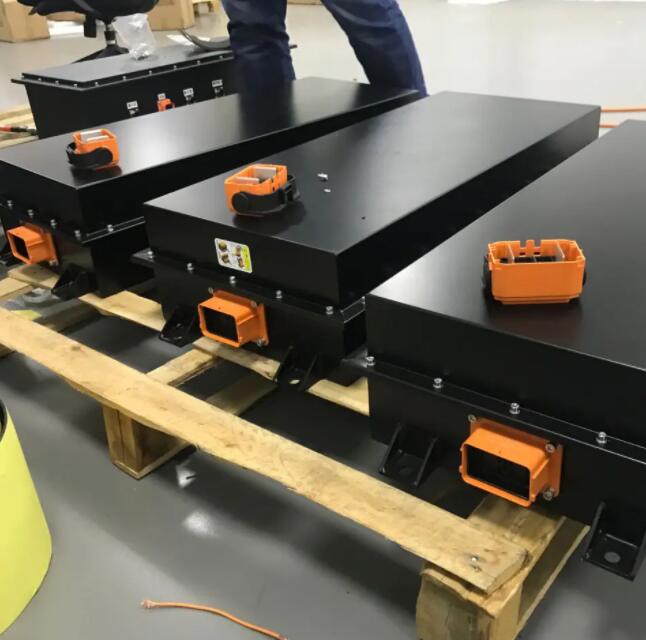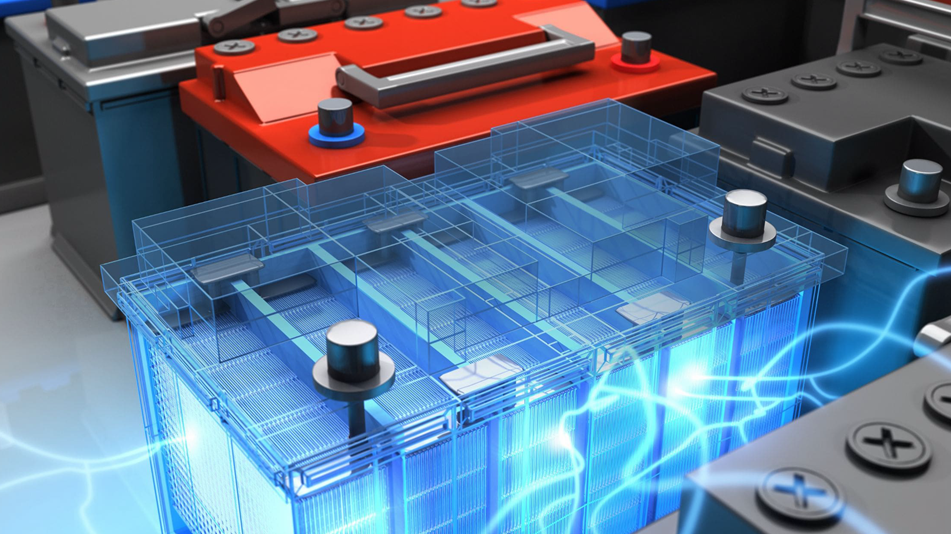vehicule electrice Furnizori de baterii cu litiu
electric vehicles Lithium battery
Electric vehicles (EVs) typically use lithium-ion batteries as their primary source of energy storage. Lithium-ion batteries are a type of rechargeable battery that have become the preferred choice for EVs due to their high energy density, long lifespan, and relatively lightweight nature compared to other battery technologies.
Here are some key points about lithium batteries in electric vehicles:
Composition: Lithium-ion batteries used in EVs consist of multiple cells, each containing a positive electrode (cathode), negative electrode (anode), and an electrolyte solution. The cathode typically contains lithium compounds, such as lithium cobalt oxide (LiCoO2), lithium iron phosphate (LiFePO4), or lithium nickel manganese cobalt oxide (LiNiMnCoO2). The anode is usually made of graphite.
Energy Density: Lithium-ion batteries have a high energy density, meaning they can store a significant amount of energy in a relatively small and lightweight package. This allows electric vehicles to have longer driving ranges and higher performance capabilities.
Charging and Discharging: Lithium-ion batteries can be charged and discharged efficiently, making them suitable for electric vehicles. They can store energy from the electric grid during charging and deliver it to power the vehicle’s electric motor during discharging.
Range and Performance: The energy density of lithium-ion batteries enables EVs to achieve longer driving ranges compared to other battery technologies. The performance of EVs, such as acceleration and top speed, is also influenced by the power output and efficiency of the battery.
Lifespan: The lifespan of lithium-ion batteries is typically measured in charge cycles, which refers to the number of times a battery can be charged and discharged before its capacity starts to degrade significantly. The lifespan can vary depending on factors such as battery chemistry, usage patterns, temperature conditions, and maintenance. Manufacturers aim to develop batteries with longer lifespans to meet the demands of EV owners.
Safety Considerations: While lithium-ion batteries are generally safe, there have been rare instances of thermal runaway or battery fires. Battery management systems in EVs monitor and control factors like temperature, voltage, and current to ensure safe operation and prevent overcharging or overheating.
Recycling and Sustainability: The recycling of lithium-ion batteries is important to recover valuable materials and reduce environmental impact. Battery manufacturers and researchers are continuously working on improving recycling processes to maximize resource recovery. Additionally, efforts are being made to develop sustainable and environmentally friendly methods for battery production.

Why Choose Lithium Battery For electric vehicles?
High Energy Density
Lithium-ion batteries have a high energy density, which means they can store a large amount of energy in a relatively small and lightweight package. This allows EVs to have longer driving ranges and higher performance capabilities.
Lightweight
Lithium-ion batteries are lightweight compared to other battery technologies, such as lead-acid batteries. This reduces the overall weight of the vehicle, improving its energy efficiency and handling.
Fast Charging
Lithium-ion batteries can be charged at a faster rate compared to other battery technologies. This means EVs can be recharged more quickly, providing greater convenience to drivers.
Efficiency
Lithium-ion batteries have a high charge and discharge efficiency, meaning they can convert a large percentage of stored energy into actual power for the electric motor. This translates to better overall energy efficiency and longer driving ranges.
Longer Lifespan
Lithium-ion batteries generally have a longer lifespan compared to other types of batteries used in EVs. They can withstand a higher number of charge cycles before their capacity starts to degrade significantly. This results in reduced maintenance and replacement costs for EV owners.
Environmental Impact
Compared to internal combustion engine vehicles, EVs powered by lithium-ion batteries produce zero tailpipe emissions, contributing to improved air quality and reduced greenhouse gas emissions. Furthermore, lithium-ion batteries can be recycled, allowing for the recovery of valuable materials and reducing environmental impact.
Technological Advancements
Lithium-ion battery technology has been extensively researched and developed over the years, leading to continuous improvements in performance, safety, and cost. Ongoing advancements and investments in lithium-ion batteries for EVs contribute to the overall growth and development of the electric vehicle industry.
While there are other types of batteries available for electric vehicles, such as nickel-metal hydride (NiMH) batteries, lithium-ion batteries currently offer the best combination of energy density, weight, charging speed, efficiency, and overall performance. As a result, they have become the dominant choice for powering electric vehicles and are expected to continue playing a significant role in the future of sustainable transportation.

-
 In recent years, the demand for electric vehicles has seen a dramatic increase. As we move towards a greener environment, the need for more efficient and sustainable energy sources has become an important issue. Lithium Iron Phosphate (LiFePO4) battery packs have emerged as a promising alternative to traditional lead-acid batteries. LiFePO4 battery packs are rechargeable lithium-ion batteries that use...Citeşte mai mult
In recent years, the demand for electric vehicles has seen a dramatic increase. As we move towards a greener environment, the need for more efficient and sustainable energy sources has become an important issue. Lithium Iron Phosphate (LiFePO4) battery packs have emerged as a promising alternative to traditional lead-acid batteries. LiFePO4 battery packs are rechargeable lithium-ion batteries that use...Citeşte mai mult -
 Cererea de soluții energetice fiabile și durabile a crescut semnificativ în ultimii ani. Odată cu creșterea surselor de energie regenerabilă, cum ar fi energia solară și eoliană, este nevoie de baterii eficiente și de lungă durată care să poată stoca și furniza energie. Bateria cu litiu 12V 200Ah LiFePO4 este o astfel de soluție care oferă energie fiabilă și durabilă pentru un...Citeşte mai mult
Cererea de soluții energetice fiabile și durabile a crescut semnificativ în ultimii ani. Odată cu creșterea surselor de energie regenerabilă, cum ar fi energia solară și eoliană, este nevoie de baterii eficiente și de lungă durată care să poată stoca și furniza energie. Bateria cu litiu 12V 200Ah LiFePO4 este o astfel de soluție care oferă energie fiabilă și durabilă pentru un...Citeşte mai mult -
 Wholesale LiFePO4 car battery suppliers can provide you with quality products for all your energy needs. Lithium Iron Phosphate (LiFePO4) batteries have become increasingly popular for use in electric vehicles due to their high energy density, long lifespan, and safety features. When choosing a wholesale LiFePO4 car battery supplier, it's essential to consider their reputation for producing high-quality batteries....Citeşte mai mult
Wholesale LiFePO4 car battery suppliers can provide you with quality products for all your energy needs. Lithium Iron Phosphate (LiFePO4) batteries have become increasingly popular for use in electric vehicles due to their high energy density, long lifespan, and safety features. When choosing a wholesale LiFePO4 car battery supplier, it's essential to consider their reputation for producing high-quality batteries....Citeşte mai mult -
 As the world is moving towards a sustainable future, the demand for efficient energy storage solutions is increasing rapidly. The High Capacity 12V 100Ah LiFePO4 Lithium Iron Phosphate Battery is a revolutionary product that promises to deliver reliable and sustainable energy storage solutions for various applications. In this article, we will discuss the features, advantages, and potential applications of this...Citeşte mai mult
As the world is moving towards a sustainable future, the demand for efficient energy storage solutions is increasing rapidly. The High Capacity 12V 100Ah LiFePO4 Lithium Iron Phosphate Battery is a revolutionary product that promises to deliver reliable and sustainable energy storage solutions for various applications. In this article, we will discuss the features, advantages, and potential applications of this...Citeşte mai mult -
 Are you tired of constantly having to replace your car battery or other power source? Do you want a longer-lasting and more reliable energy solution? Look no further than the 12V 100Ah Lithium Battery LifePO4. This lithium battery is the perfect power source for a variety of applications, from cars and boats to solar energy storage systems and off-grid...Citeşte mai mult
Are you tired of constantly having to replace your car battery or other power source? Do you want a longer-lasting and more reliable energy solution? Look no further than the 12V 100Ah Lithium Battery LifePO4. This lithium battery is the perfect power source for a variety of applications, from cars and boats to solar energy storage systems and off-grid...Citeşte mai mult -
 Power Up Your Devices with a 12V 200Ah LiFePO4 Lithium BatteryIn today\'s world, everyone relies on electronic devices to make their lives easier. Whether it\'s a smartphone, laptop, or tablet, we need these devices to stay connected with the world. However, these devices are only as good as their power source, and that\'s where a good battery comes in.If you\'re...Citeşte mai mult
Power Up Your Devices with a 12V 200Ah LiFePO4 Lithium BatteryIn today\'s world, everyone relies on electronic devices to make their lives easier. Whether it\'s a smartphone, laptop, or tablet, we need these devices to stay connected with the world. However, these devices are only as good as their power source, and that\'s where a good battery comes in.If you\'re...Citeşte mai mult -
 Lifepo4 battery technology is emerging as a promising solution for future electric vehicles (EVs). The technology is being adopted by many electric vehicle manufacturers due to its advantages over traditional battery chemistries such as improved safety, higher energy density and longer lifespan. One of the biggest advantages of Lifepo4 batteries is their safety. These batteries are inherently safer than other...Citeşte mai mult
Lifepo4 battery technology is emerging as a promising solution for future electric vehicles (EVs). The technology is being adopted by many electric vehicle manufacturers due to its advantages over traditional battery chemistries such as improved safety, higher energy density and longer lifespan. One of the biggest advantages of Lifepo4 batteries is their safety. These batteries are inherently safer than other...Citeşte mai mult

